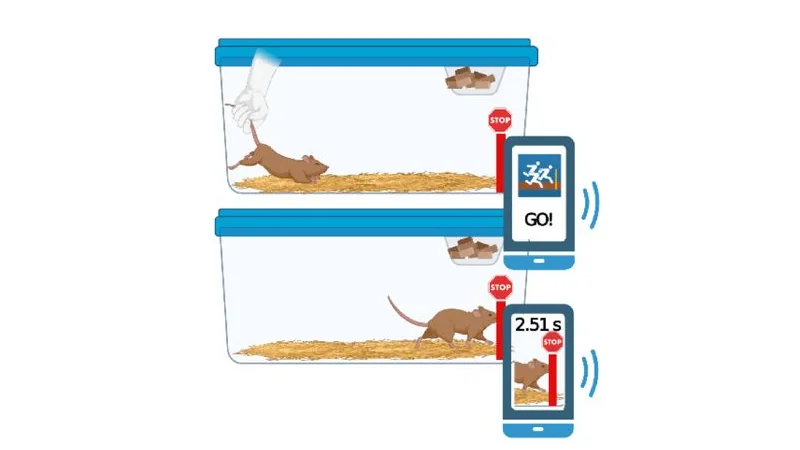A team of researchers, including Steve Horvath, Leonid Peshkin, and Vadim Gladyshev, has published a preprint on bioRxiv showing the effects of early administration of rapamycin over the lifespans of mice.
Rapamycin before and after weaning
In this placebo-controlled experiment, the researchers selected the UMHET3 strain of mice, as it is a crossbreed that does not suffer the negative effects of inbreeding. 130 newborn mice were selected for a lifespan study, and another 40 were selected for a healthspan study. The mothers of the newborns selected for treatment were administered rapamycin, which was shown to be transmitted to the newborns through their milk. This continued until the mice were weaned at three weeks, after which they were administered rapamycin until they were 45 days old.
In line with previous research [1], the pups administered rapamycin were substantially smaller than their untreated counterparts, even within a few days. Protein content and milk consumption were the same between the groups, showing that the difference was caused by rapamycin rather than a nutritional deficit. Rapamycin was also shown to delay the onset of sexual maturity, and it was shown to significantly reduce the size of the spleen, liver, heart, kidney, and brain.
Effects on murine lifespan
Early life rapamycin was shown to significantly increase lifespan only in male mice. As this research shows, male mice do not normally live as long as female mice, but rapamycin administration brought their lifespan nearly to that of females, who were only slightly affected by rapamycin. The reasons why the mice died were the same between both groups; rapamycin simply delayed the mortality of age-related diseases.
Gait disorders, body condition, distended abdomen, and a loss of forelimb grip strength, all of which are regularly chosen aging biomarkers for mice, were shown to be delayed with early life administration of rapamycin. Rapamycin significantly improved glucose and insulin tolerance only in males.
The effects on epigenetics largely matched the effects on lifespan. Male mice maintained a comparatively youthful transcriptome, but this did not hold true for females, particularly in the liver. Many of the effects brought about by early life rapamycin were attenuated with age in both sexes.
To confirm their findings, the researchers examined the effects of early life rapamycin on the commonly studied Daphnia species, receiving similar results to their murine experiment. Daphnia given a very small dose of rapamycin eventually reached the body size of the control group while living significantly longer.
Conclusion
The researchers offer several hypotheses and explanations for their findings. The somatic mutations that drive cancer later in life may be suppressed by early life rapamycin [2]. Other research has shown that rapamycin has lifelong benefits for the chromatin in the mouse intestine [3].
The researchers also note that they used only one dose of rapamycin in this study, and, given the Daphnia results, it may have been too large. There may be a rapamycin dose that has substantial effects on murine lifespan while having reduced effects on body weight.
However, it must be noted that this preprint study is simply a scientific curiosity that may lead to other research, not a proposed intervention. Using such a treatment on human newborns is obviously a very bad idea, not least because this research shows that rapamycin shrinks the organs, including the brains, of baby mice.
Literature
[1] Siegmund, S. E., Yang, H., Sharma, R., Javors, M., Skinner, O., Mootha, V., … & Schon, E. A. (2017). Low-dose rapamycin extends lifespan in a mouse model of mtDNA depletion syndrome. Human molecular genetics, 26(23), 4588-4605.
[2] Williams, N., Lee, J., Mitchell, E., Moore, L., Baxter, E. J., Hewinson, J., … & Nangalia, J. (2022). Life histories of myeloproliferative neoplasms inferred from phylogenies. Nature, 1-7.
[3] Lu, Y. X., Regan, J. C., Eßer, J., Drews, L. F., Weinseis, T., Stinn, J., … & Partridge, L. (2021). A TORC1-histone axis regulates chromatin organisation and non-canonical induction of autophagy to ameliorate ageing. Elife, 10, e62233.




